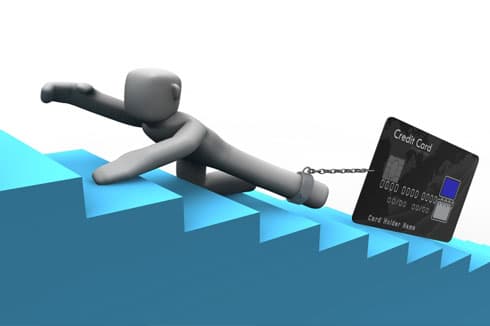- Review when it makes sense to consolidate your debt.
- Understand when debt consolidation is not the right choice.
- Shop around to find the best consolidation program.
- Start your FREE debt assessment
Best Debt Consolidation Advice
Debt consolidation can be a great tool to help manage your debt. By bringing all of your debt to one lender, you eliminate the hassle of making several payments. Many times, you can get a better interest rate or loan package by consolidating. It can be hard to know when the best time to consolidate is and when it would be better for your financial health to leave well enough alone.
Debt Consolidation Advice - When to Consolidate
- Definitely consolidate your student loans if you know you can get a lower interest rate. As long as you don't consolidate your federal loan with a private loan, you can retain the benefits associated with student loans and get better rates. Federal student loans can be put on deferment and forbearance without penalty if you're short on money and don't have repayment fees if you happen to come into a lot of money.
- Consolidation is the answer when you can get a lower interest rate on a new loan than you have on your current loans. A bunch of high interest loans that you can combine into one single low interest loan are ripe for consolidation, just make sure that the rate on your new loan is indeed lower than your current interest rates.
- Consolidate your credit card and other debt when making multiple monthly payments is strangling your finances. Even if you can't get a lower interest rate, you can usually reduce your overall monthly payments by getting a longer loan term. This option will usually cost you more money in interest over the years, but it will free up cash for current household needs.
Debt Consolidation Advice - When Not to Consolidate
- Don't consolidate if you're unable to make the payment on the consolidation loan. Most debt consolidation loans are secured against your property and if you default on the payment then you can lose your home.
- Don't consolidate if you can't control your budget. Consolidating your loan may lull you into a false sense of prosperity. By consolidating, you might reduce your monthly payment, but you won't reduce your debt. It is better to continue to pay your bills if consolidating will only tempt you to create more debt.
- Don't consolidate if you don't want to pay more interest overall. A loan that extends your term will usually cost you more in interest, even with a lower rate, than paying off a higher interest loan over a shorter term. Crunch the numbers before you sign your contract if you're in doubt.
- Don't consolidate if you might need your home equity in the future. Plans to remodel, emergency financing, and extra retirement cash are all tied up in your home equity. By using your equity to consolidate, you will deplete your resources down the road.
Don't waste your time with any lender that makes you uncomfortable or won't give you extra time to review your debt consolidation paperwork with a lawyer. Whether you consolidate or not is up to you, but be sure that you understand the entire consolidation process and what exactly is at stake before you commit to anything. High interest rates and multiple payments can be a thing of the past when you find a good debt consolidation lender.
Free up cash each month with Freedom Debt Relief

Ozzy S., Freedom client
“Right away, I had more money each month because of program costs so much less than what I was paying on my minimums.”
Actual client of Freedom Debt Relief. Client’s endorsement is a paid testimonial. Individual results are not typical and will vary.

